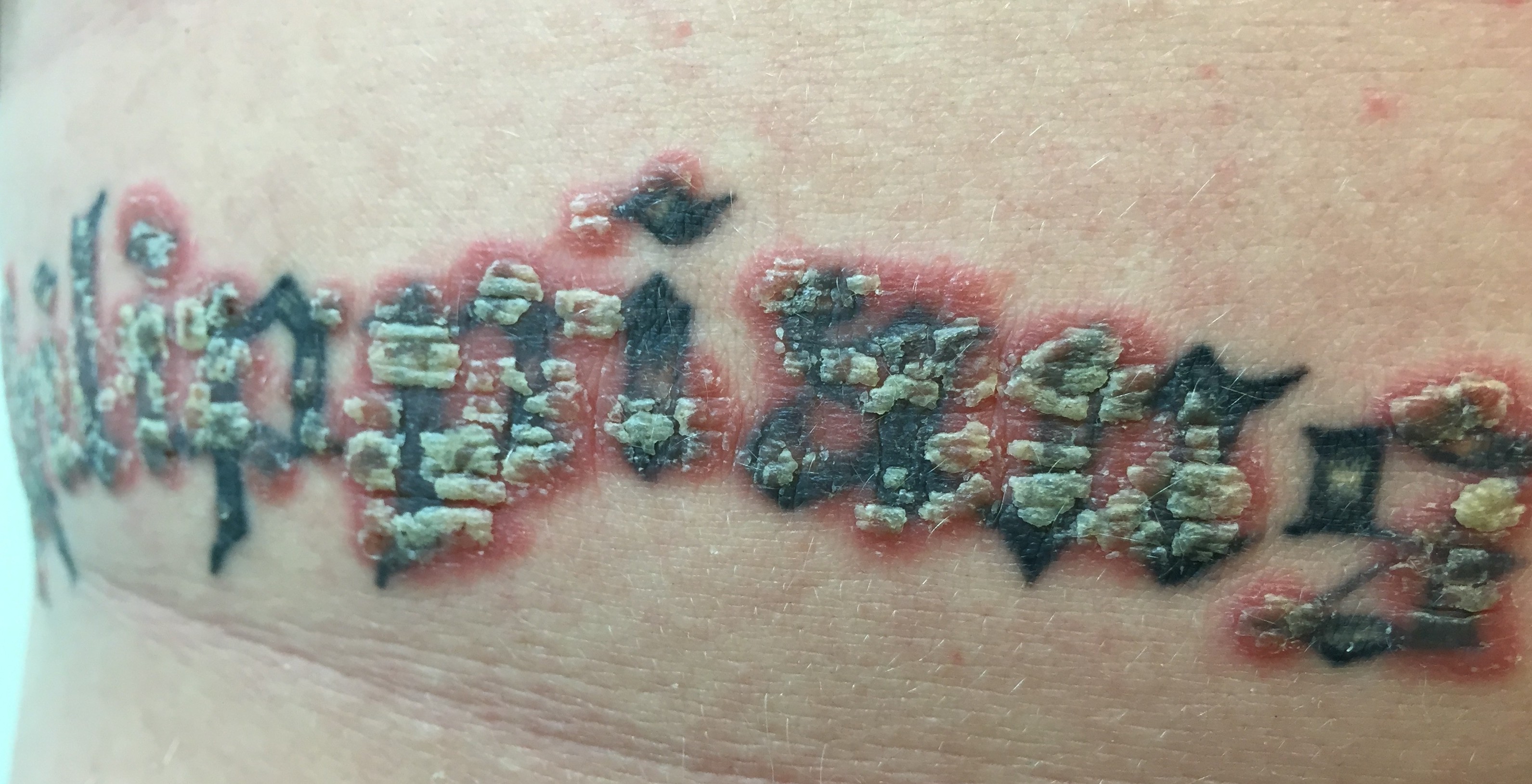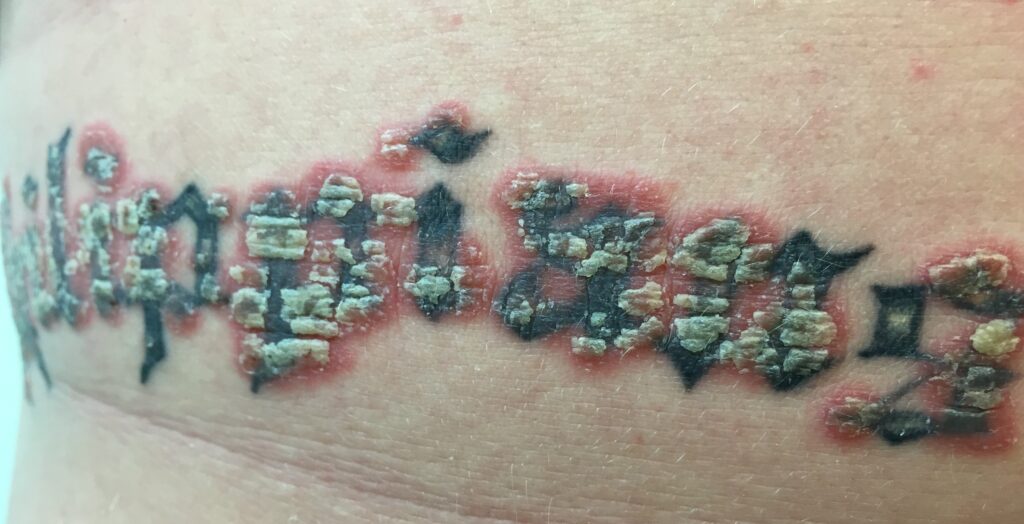Dr. Ted Rosen discusses results from a questionnaire-based analysis of 150 tattooed psoriatic patients.
Tattoos and Psoriasis: Risk vs. Benefit
By Ted Rosen, MD, FAAD
Editor-in-Chief
“Patients with psoriasis are at relatively low but clear risk of complications should they obtain a tattoo. Psoriasis patients have traditionally been cautioned about obtaining a tattoo,” said Ted Rosen, MD, FAAD.
There are two theoretical risks from tattooing for psoriasis patients. One is infection at the tattoo site, perhaps related to immunosuppressive therapy for the underlying psoriasis. The other is risk of local or systemic flare of psoriasis due to the inflammation which accompanies tattoo placement, according to Dr. Rosen.
“However, there is a paucity of solid clinical research to clarify how real these risks are.”
Dr. Rosen cited a study designed to help fill this knowledge gap published in Clinical, Cosmetic and Investigational Dermatology.1 The study by Polish authors is of an anonymous online survey of 150 patients with psoriasis who obtained one or more tattoos. The cohort consisted of 134 women and 16 men, with a mean age of 32. Ninety-five percent had psoriasis onset at or before age 40. The study cohort included about 15% who were on systemic medication for psoriasis, including methotrexate, cyclosporine, and assorted biological drugs, according to Dr. Rosen.
“Surprisingly few patients—only 8%—sought medical advice before obtaining a tattoo. Sixty-four percent had only the typical dark blue-black tattoo; the rest (36%) has multicolored tattoos.”
“Only 8.7% (13) of this entire group actually experienced a complication attributable to the receipt of a tattoo. Demonstration of the Koebner phenomenon, psoriasis developing on the tattoo, was the most frequent adverse event noted, but in only 8 cases (5.3%).” (See Figure 1)

Less frequent complications included a generalized psoriatic flare (2 patients, 1.3%), a pruritic non-specific, non-psoriatic eruption (2 patients, 1.3%), and delayed tattoo healing (1 patient), said Dr. Rosen.
There were no infectious complications, even among the patients receiving systemic anti-psoriatic therapy, he said.
“On a positive note, nearly 51% of the study patients (76 out of 150) had improved self-esteem due to their tattoo.”
“In summary, these results suggest that tattooing might have a beneficial influence on the psychological well-being of psoriatic patients, and that this may outweigh the relatively small risk of untoward events which accompany tattoo placement.”
Reference:
- Rogowska P, Walczak P, Wrzosek-Dobrzyniecka K, et al. Tattooing in Psoriasis: A Questionnaire-Based Analysis of 150 Patients. Clin Cosmet Investig Dermatol. 2022 Apr 6;15:587-593. doi: 10.2147/CCID.S348165. PMID: 35418768; PMCID: PMC8995150.

